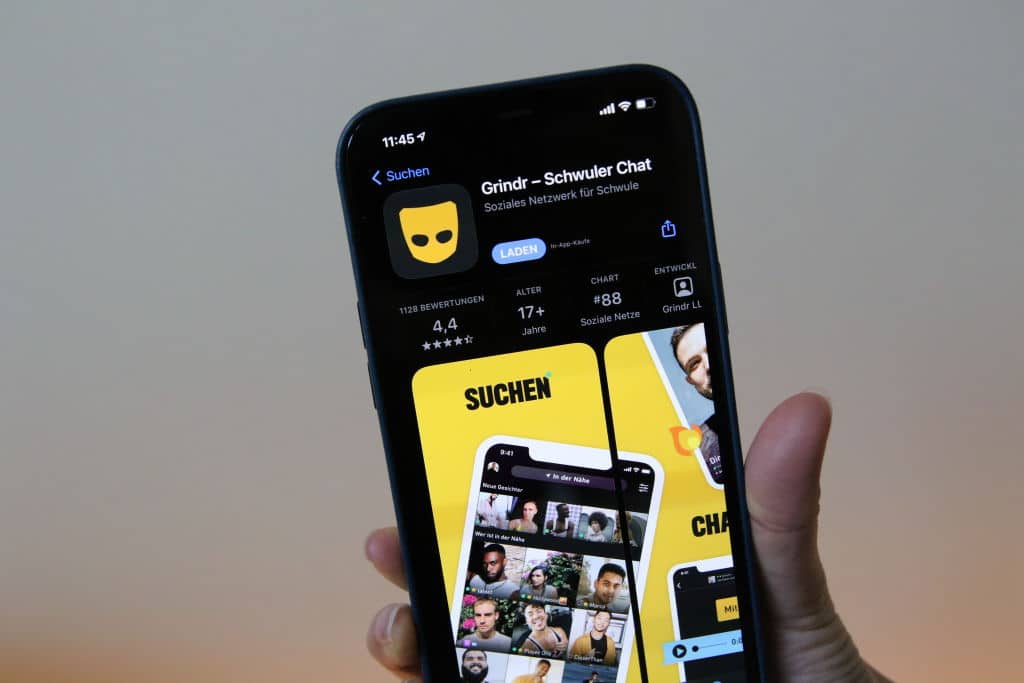TOPLINE
A class action lawsuit with hundreds of claimants was filed at the High Court in London Monday as plaintiffs accuse the LGBTQ+ dating app Grindr of sharing sensitive medical information, including HIV status, with advertisers, who then allegedly sold that data on to other businesses, multiple outlets reported.
KEY FACTS
English law firm Austen Hays alleges Grindr breached data protection laws in Britain when it sold information on users’ ethnicity, sexual orientation, HIV status and beyond with ad companies Localytics and Apptimize between spring of 2018 and April 2020.
The lawsuit goes on to allege those companies may have then passed the data on to fourth parties, allowing “a potentially unlimited number” of firms to target users online using the information.
Hays said in a statement to Forbes that more than 670 people have already signed up to the claim with potential for thousands of others to join—Grindr had almost 1 million U.K. users as of last May.
Chaya Hanoomanjee, director of Hays’ firm, said in a statement that clients whose data was shared “have suffered feelings of fear, embarrassment and anxiety as a result.”
Loading...
Grindr did not immediately respond to Forbes’ request for comment Monday but told the BBC the lawsuit “appears to be based on a mischaracterization of practices from more than four years ago” and that the company will “respond vigorously” to the claim.
CRUCIAL QUOTE
“Grindr owes it to the LGBTQ+ community it serves to compensate those whose data has been compromised and have suffered distress as a result, and to ensure all its users are safe while using the app, wherever they are, without fear that their data might be shared with third parties,” Hanoomanjee said.
KEY BACKGROUND
Grindr was first found to be sharing sensitive sexual health data, including HIV status of users, with advertisers and analytics companies back in 2018. Norwegian research organization SINTEF first discovered the data was being shared, and Buzzfeed followed up with its own report that GPS data, phone ID and email addresses were also being shared. In April of 2018, Grindr issued a privacy statement both denying and defending its actions. CTO Scott Chen said in a statement that Grindr has “never” sold HIV status information to third party advertisers, but also said it was clear in the app’s privacy policy that “if you choose to include this information in your profile, the information will also become public.” That same day, Axios reported Grindr had stopped sharing users’ HIV status. The controversy drew the ire of several regulatory authorities, including the Spanish Data Protection Authority and the Information Commissioner’s Office in the United Kingdom, which each went on to file data breach complaints. The Norwegian Data Protection Authority ultimately fined Grindr $6 million for violating data privacy practices.
BIG NUMBER
13 million. That’s how many people use Grindr monthly, according to Austen Hays, making it the most popular LGBTQ+ mobile app in the world.
TANGENT
In 2020, Grindr faced regulatory complaints over its Chinese owner similar to those currently plaguing the popular video app TikTok. Chinese gaming giant Beijing Kunlun acquired Grindr, originally developed in Los Angeles, in 2016 and the app was soon hit with national security concerns stemming from the Chinese government potentially gaining access to the personal data of U.S. users. The company ultimately sold its stake to a U.S.-based company, which allowed Grindr to continue operating. The story is similar to that of TikTok, which is currently under intense scrutiny from U.S. lawmakers because its parent company, ByteDance, has refused to divest from the social media app. The House of Representatives on Saturday passed a bill that will ban TikTok if ByteDance doesn’t sell its stake within a year. The bill now moves to the Senate, where a vote could happen this week, and President Joe Biden has said he will sign the legislation if it makes it to his desk.
Loading...
